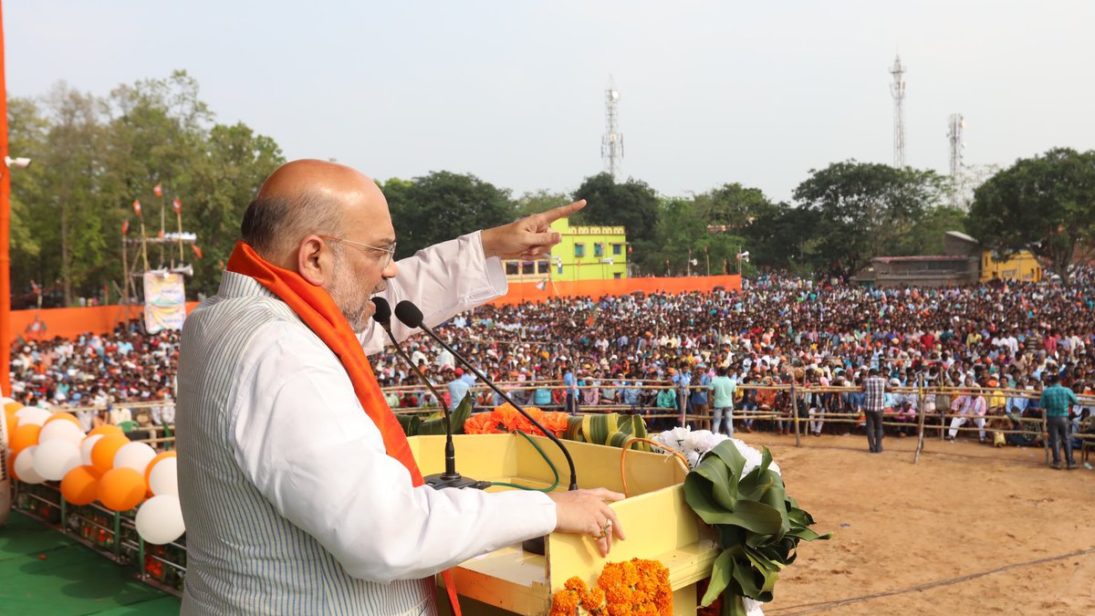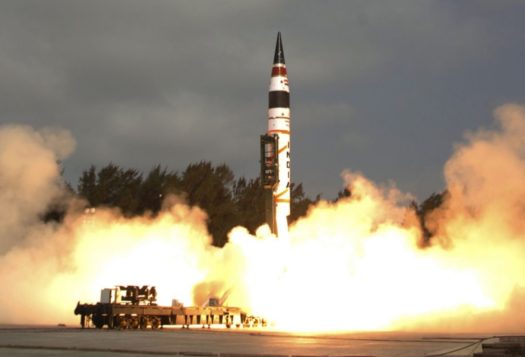
In the context of the ongoing Lok Sabha elections, the plight of Kashmiri Pandits has once again been at the forefront of Indian political discourse. Kashmiri Pandits, the community of Hindu Brahmins from the Kashmir Valley, were brutally forced out of the region shortly after the ongoing insurgency began in 1989. The tragic event took place in January 1990, when Muslim separatists began raising communal slogans and consequently gave Sikhs and Pandits three choices: convert, leave, or be killed. Close to 30 years after this incident, out of the 150,000 Pandits, only an estimated 2,500 Pandits remain in the Valley. While some of them managed to integrate in other societies, most of them live as refugees in Jammu, parts of the National Capital Region (NCR), and New Delhi.
Over the years, calls to repatriate the community back to Kashmir have come to naught and political parties have largely instrumentalized their cause. Given this year’s Lok Sabha polls, the Pandit community has once again seen its cause politicized by both parties. In one recent instance, Prime Minister Modi accused the Congress party of “overlooking atrocities” committed against the group. In this election season, it is pertinent to examine the significance of the gap between rhetoric and action by Indian political parties on the well-being of Kashmiri Pandits and what steps need to be taken to improve their conditions.
Between Rhetoric and Action
Given this year’s Lok Sabha polls, the Pandit community has once again seen its cause politicized by both parties. In one recent instance, Prime Minister Modi accused the Congress party of “overlooking atrocities” committed against the group.
In recent years, both the Congress and the BJP have spoken about the cause of the community to win over voters. For example, the Congress chief in Jammu and Kashmir noted that Kashmir is incomplete without Kashmiri Pandits. Even the Congress president Rahul Gandhi claimed himself to be a descendant of the community. Similarly, the BJP also brought up the Pandit issue in its 2014 election manifesto. Moreover, PM Modi has continuously raised the cause of the Pandits, promising repatriation and upliftment in many of his speeches. Clearly, both the BJP and the Congress have tried to use the plight of the community to enhance their credibility. These declarations warrant an examination of the policies that have been taken for the community.
In the last 10 years, only three major schemes have been implemented by the central government to alleviate the plight of the Kashmiri Pandits. The first was the building of over 5,000 two-room tenements in 2004 . In 2008, another scheme was introduced by the UPA government which promised government jobs to at least 3,000 individuals and focused on building infrastructure. This, however, was never fully realized, with about one third of the jobs promised never disbursed. Most recently, the Modi government announced the release of USD $16 million (or 115 crore) in 2016 for building temporary homes for the community.
Yet, it is unclear how much of these funds have gone into the welfare of the community, which inhabits squalid camps across the nation. Both the Congress and the BJP governments have failed to keep records regarding the killing of the Pandits as well as records on repatriated migrants in the Valley. When interviewed, members of the central government have tried to pass the blame to previous governments or the Kashmiri state government.

Instrumentality of Refugees
Though some appreciated the renewed attention the BJP drew to their cause since the 2014 elections, many members of the Kashmiri Pandit community have voiced their frustration at the current government, claiming that it is no better than previous governments despite the BJP’s strong campaign promises in 2014. Some Pandits have noted how many of their rations have been reduced and that no BJP worker has come to inspect the conditions of their settlements.
But this inaction is nothing new. Despite trumpeting the Pandit cause in the 1990s, the BJP government, while ruling in the center from 1999-2004, did not do much for the group. As documented by Pandit journalist Rahul Pandita, many Pandits during the time felt that the then Vajpayee-led BJP government did nothing for the community that was reeling from a massacre in 2003 at the hands of the Lashkar-e-Taiba. Perhaps this inaction explained why many Kashmiri Pandits welcomed the exit of the BJP from the BJP-PDP alliance in 2018.
Neither is the Congress exonerated from this instrumentality, who despite their rhetoric of protecting the community did not include their cause in the 2019 election manifesto. These tactics have only angered members of the community who expected some assurances of their welfare or repatriation to Kashmir given Rahul Gandhi’s past statements of sympathy towards the Pandit community.
Inaction: A Cause for Harm
Beyond the moral justifications of repatriating the Pandits, neglecting the community is also problematic for a number of reasons. First, it creates friction in the communities in which they settle since people may feel that their jobs are taken by the Pandits – regardless of the truths of this assertion. Second, it impinges on India’s image as a rising power, and instead projects the idea that it is unable to take care of its most downtrodden communities. Finally, ignoring their plight is also symptomatic of a failure to solve the Kashmir issue itself. Solving the frozen conflict requires discussion with all the stakeholders such as the Kashmiri Muslims and Hindus as well as members of the local political parties – something the BJP-led center and previous governments have been unable to do.
A number of measures can be taken to improve thecurrent situation of the Pandits. Firstly, administrative measures such askeeping records of First Information Reports (FIR)’s on the killing of the Panditsas well as on the number of people repatriated back to the community isrequired. Moreover, the government has to take concrete steps that ensure thatexisting schemes such as the Prime Minister Employment fund are fully realized.Moreover, the government can provide more education and training along withguaranteed jobs to the Kashmiri Pandit migrant communities as well as safety tothose who want to return to Kashmir.
More importantly, the role of the media andactivists is essential in questioning and holding political parties accountableto their promises. These steps would help alleviate their situation and ideally,reduce such instrumentalization.
Unless new policies are enacted and the Kashmiri Pandit issue receives due attention, this beleaguered group, whether due to bureaucratic delays, corruption, or fear of continued persecution by extremists, will continue to find it difficult to return to Kashmir Valley. Moreover, their cause will continually be politicized by political parties without necessarily doing much for their benefit. In the long run, this will only bode negatively for the community and the country which is already failing to provide welfare to large parts of its society.
Image 1: BJP4India via Twitter
Image 2: The India Today Group via Getty


